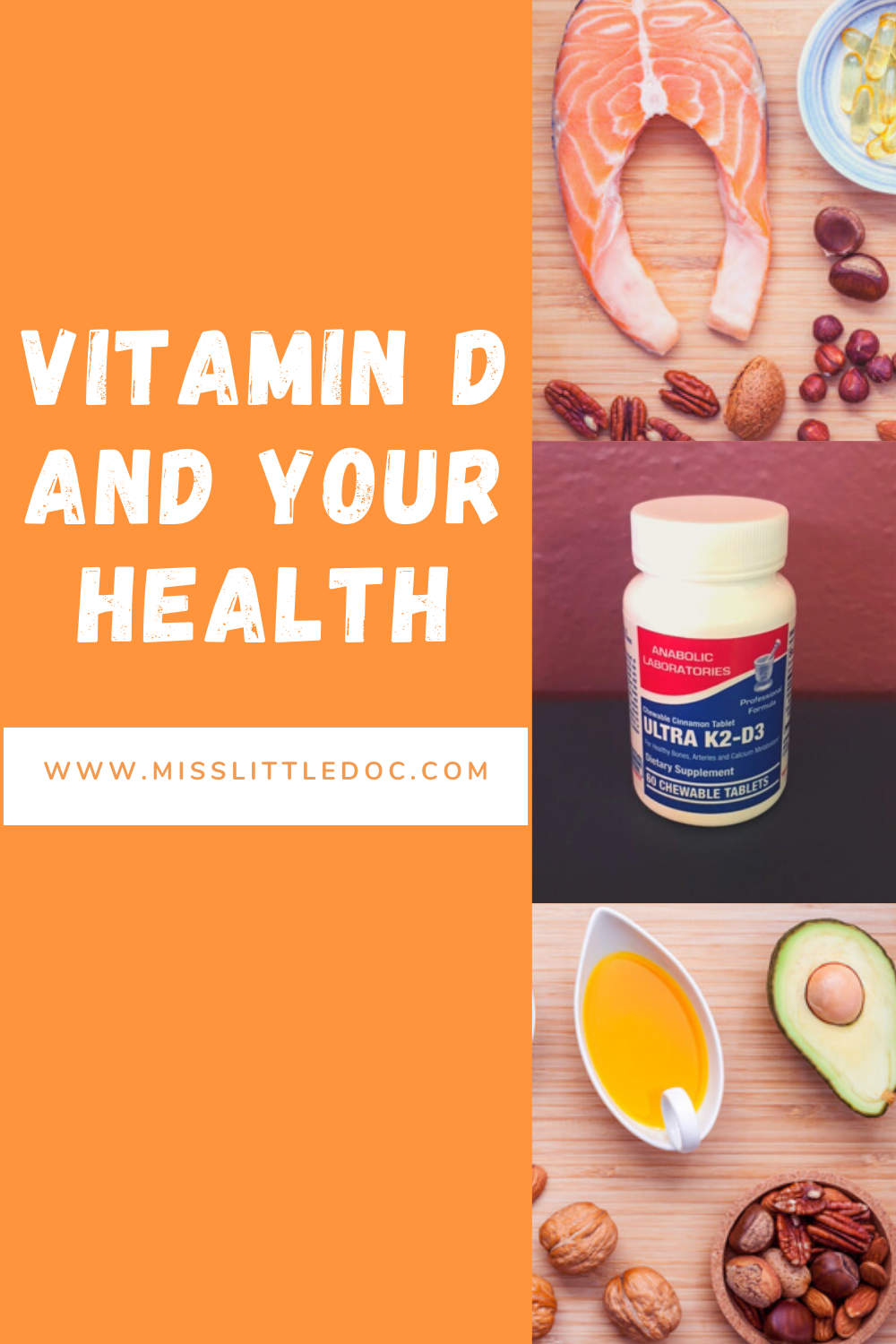Vitamin D and Your Health
Vitamin D plays a vital role in the body. It is a fat soluble vitamin that is found in some foods, sunlight and supplements. Which means that it gets stored in your fatty tissue and liver. When you burn off fat the vitamin can be used. Water soluble vitamins consist of vitamins that do not get stored in your body, but you have to take them more often to get maximum benefit from them. Vitamin D is being researched daily and is being attributed to more functions in the body.
Vitamin D promotes calcium absorption in the gut and enables normal bone mineralization. Deficiency in vitamin D causes bones to become brittle and together with calcium, vitamin D helps protect older adults from osteoporosis.
In foods and dietary supplements, vitamin D has two main forms, D2 (ergocalciferol) and D3 (cholecalciferol), that differ chemically only in their side-chain structures. Both forms are well absorbed in the small intestine.

Function of Vitamin D
Weight Loss- When you don’t have enough vitamin D, you feel hungry all the time, no matter how much you eat. That is because low levels of vitamin D interfere with the effectiveness of leptin, the appetite hormone that tells you when you are full. When you are over weight, you have less vitamin d in your system.
Immunity- Vitamin D receptors are found all over the body, including the immune cells. Research shown that vitamin D deficiency is part of the seasonal nature of cold and flu outbreaks.
Cognitive Function– In the past few years, many studies have linked shortage of vitamin D with cognitive impairment in older men and women and very low levels of vitamin D are at twice the risk of Alzheimer’s disease.
Mood- Low levels of vitamin D have long been associated with a higher incidence of depression.
Muscles- One of the byproducts of vitamin D’s breakdown, helps with contraction and relaxation of the muscle and in turns makes muscles stronger.
Lungs- Vitamin D plays a role in keeping our lungs healthy due to it possessing a range of anti-inflammatory properties.
Heart- Research has demonstrated an inverse relationship between vitamin D levels in the blood and high blood pressure. In other words, the lower the vitamin D, the higher the blood pressure.
Kidneys-Because vitamin D is a fat-soluble vitamin, it helps to regulate kidney function and plays a very beneficial role in treating kidney disease.
Vitamin D deficiency, has been associated with cardiovascular diseases, arterial hypertension, dyslipidemia, type 2 diabetes, cancer, multiple sclerosis, depression, dementia, psychiatric diseases, and others.
Chiropractic
Chiropractic care looks at whole body health. When you see a chiropractor you should be concerned with how your body is functioning, rather than wanting to chase pains. Pain is a symptom of something that isn’t functioning properly. Whether it is from a misalignment of the spine, a vitamin deficiency, a food allergy or something else, chiropractors want to find out what the cause is.
If you have any questions on what chiropractic can help you with give usor a chiropractor near you a call! Chiropractic is very effective at managing pain, but all chiropractors want to keep you healthy and functioning at the best you can! Think about putting chiropractic into your life as a lifestyle. (Which usually only consists of once a month adjustments, keeping your diet healthy and reaching all your personal lifestyle goals.)
~Dr. Lacey~
Carder Chiropractic Clinic, INC.
El Reno, OK 73036



